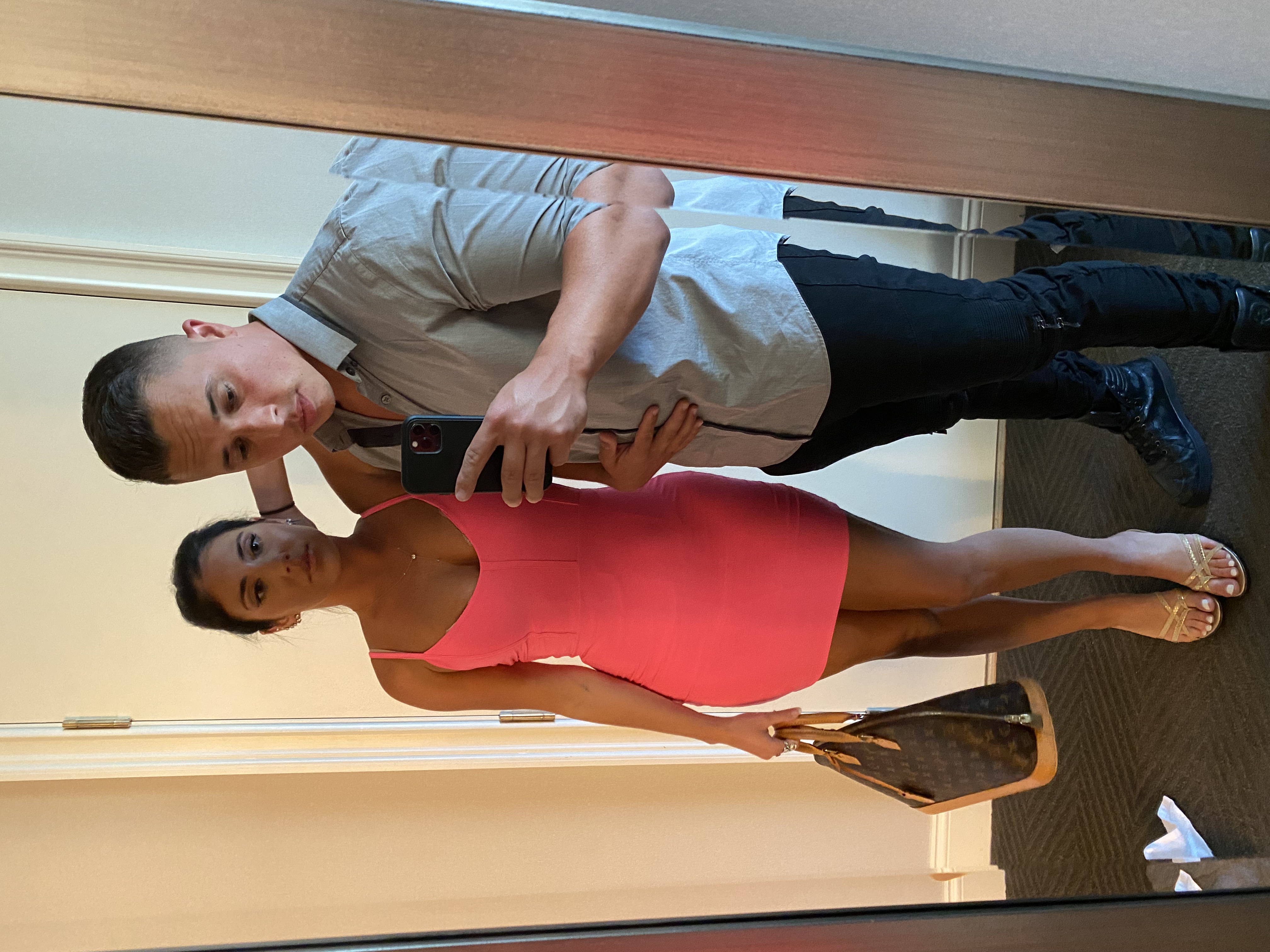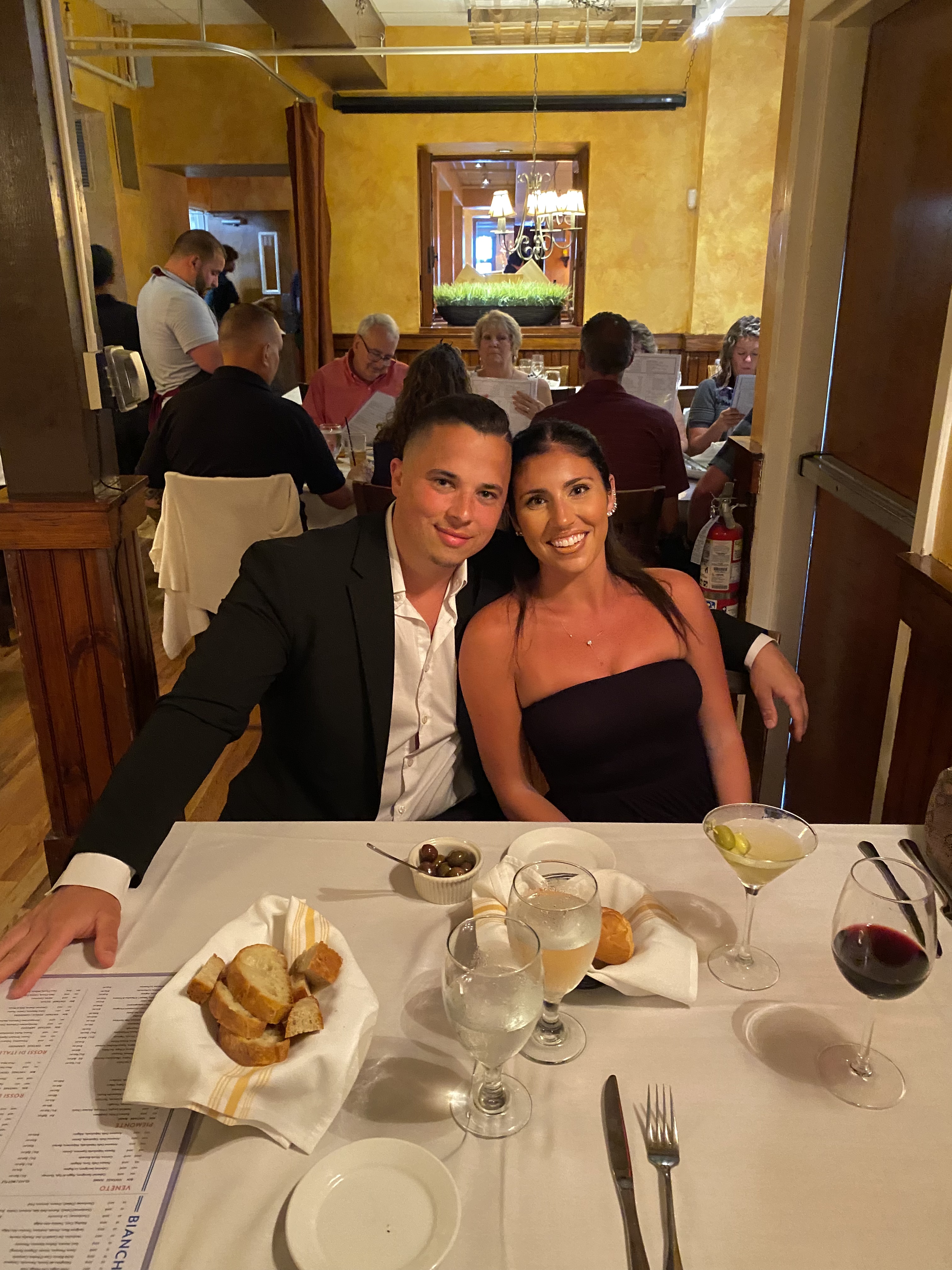
Stance on having children, marriage, a lack of responsibility and ambition, different religious or political views, and different views on finances all tend to be common relationship deal breakers. I personally think that kids, marriage, and a lack of responsibility and ambition tend to be something most people can’t work around and come to a compromise on (especially kids), but I do think that if two people are willing to compromise and are open to hearing each other out, a common ground can be found. Take it from me: my boyfriend and I have always had the same financial goals, but we have always viewed and handled finances differently.
Yes, that’s right: my boyfriend and I have always had the same financial goals but different relationships with money. And yet despite our differences, money isn’t a stressor in our relationship.
Admittedly, the fact that my boyfriend and I have always been on the same page with our life goals has definitely been a big part of why that is; our ambition and drive have always lined up together. We’ve always been on the same page of where we are now and where we want to be, but our methods of getting there have varied wildly.
About a year ago I started doing a lot of deep thinking and self-reflecting. I started off by doing deep breathing exercises daily, then eventually moved on to what has now become my morning ritual. It was during all of this that I started learning more about myself. I learned about comfort zones and how I was holding myself back, and how some of my boyfriend’s fear of money was starting to rub off on me because I suddenly found myself stressed about every purchase. I’ve always prided myself on my budgeting skills and managing my money well thanks to my healthy relationship with it, so worrying about spending and sticking to a budget has always backfired for me. It’s always done the complete opposite, and I’ve found myself inadvertently spending more because I’m so focused on every damn dollar. What was even more frustrating to me was that I wasn’t (and still aren’t) in any sort of debt. I even had enough money in my savings and investments so if, God forbid, something should happen, I’d be OK. But my boyfriend’s fear of money had permeated into my brain and thinking, and I suddenly realized that I’d never get to where I wanted to be financially if I kept thinking I was starting at a disadvantage—especially when I wasn’t. The mind is a powerful thing, and if you tell yourself something enough times, you’ll come to fully believe it to be true. Upon realizing this, I stopped worrying about what I was spending and went back to living my life how I normally do, and everything was fine.
Early this spring my boyfriend and I were taking a walk together. He was frustrated because he had found himself at a crossroads: continue working in his comfort zone as a fitness YouTuber, or make a big career transition into something that could potentially make him happier. He wanted to continue on in the career path he was currently in because there was safety in it and was making a lot of money doing it, but felt complacent and unhappy in general. Naturally, the biggest reason he didn’t want to change career paths was because of the money, and was also terrified of what would happen once he stepped out of his comfort zone and committed himself to something completely different.
Money. Money, money, money. Everything revolves around money.

I’d seen his frustration; I’d felt it. I knew he was longing for something different but was holding himself back out of fear. I recognized this in him because I had just recently realized I had still been holding onto my dream of becoming a professional wrestler, and holding on was holding me back. Once I’d finally let go of that dream, doors started opening up for me. I reminded him of this after he told me how torn he was, and then he responded by asking me: “What do you think I should do?” I told him that I had an idea of what he should do, but only he knew the answer to that. I also said that he had to be willing to take a good, long, and deep look inside himself to try and find it. I also warned him that it might not come right away, that sometimes these things take time. I suggested he try meditating and journaling like I do, and at first he resisted. “I’ll journal but I can’t get into meditation, my brain won’t let me,” he argued. I told him fine, it was his call, but how could he ever expect to grow in life if he wasn’t willing to try out something new that made him slightly uncomfortable?
And so he started meditating with me and journaling on his own afterwards, like I do. He ended up realizing how unhappy he truly was in his career, and decided to make the transition after all. I knew then like we both know now that it was absolutely the right call.
We continued to take walks together and have these deep talks, which is how we were able to finally put a finger on his money frustrations. He kept saying to me things like: “I think I’m just not that smart and have been lucky my whole life to have made it where I am today,” or, “Maybe I’m just not meant to be as successful as I want to be. Maybe I’m not capable of doing it.” I looked at him and told him that no one dumb had made six figures by 24 like he had, purchased their own home at 25, flown all over North America for sponsorships, and grown all of their social media platforms to a combined 2,542,000 people worldwide, with 75 million views worldwide on their YouTube channel by being dumb or lucky. “You may have had some luck in your lifetime, but not that much luck,” I reminded him. “But what if my luck’s run out and this is it? Is this is as good as it’s going to get?” He argued. “Well then you’d better figure out what to do next or stay stuck here forever,” I said. “Fine,” he responded, “But I feel like I have the potential to be successful in my new endeavors, and every time I start making money and becoming profitable I end up taking three steps backwards and shooting myself in the foot.” We continued walking and talked more in depth about this, until finally something dawned on me. “You’re f*cked up with money,” I told him. He laughed and said that he agreed.
And thus our deep-dive into his psyche with money and our different views on finances was born.

I understood his frustration with his new endeavors, but I was able to see that there was something much deeper going on with him and money. He had the potential to do well in his new field; he had laid out the groundwork, built the foundation and principles, but lacked the discipline and follow-through. I saw someone who was so terrified of failing that they barely let themselves try, that was so consumed with the dollar amount they ended up holding themselves back because they were only looking at the small picture. Money was the thing he kept coming back to when he’d vent his frustrations, and I was able to recognize that he was fighting an internal battle with how he viewed money. Over the last few years, he’d come to have the same budgeting skills as me, and we both knew the importance of keeping an emergency fund in savings, as well as an investment portfolio where our money could grow for the future. He’s never overleveraged himself or gone into debt because he can’t live within his means or budget to save his life. His budgeting skills were not the problem, it was his relationship with money that was.
Contrary to what he said, his career in the fitness world came from all of his hard work, drive, and ambition; it did not come from luck. Money didn’t just fall in his lap, and he wasn’t given it while he was growing up—but his unhealthy relationship with money 100% stemmed from his childhood.
Childhood marks all of us in different ways. I had my fear of being vulnerable among other things, and my boyfriend’s was money. He had a very frugal upbringing. Growing up, he perceived that frugality as a need to fear money, hold onto it, and hoard it when he did have it because any little purchase meant the lights would suddenly be shut off. But he didn’t grow up poor. In fact, he and I had similar upbringings overall: we weren’t given gifts randomly unless it was our birthday or Christmas, and we were taught the value of a dollar and had to work for everything, but we were blessed because we never had to worry about where our next meal was coming from or if the lights were going to be shut off.
He felt like he grew up in a world that contradicted itself, specifically in regards to money. As he got older and started making his own money, he started rebelling and blowing it after feeling like he couldn’t for so long. But again: interestingly enough, he would blow his money, but he never, ever put himself into debt or a position where he was unable to pay his bills—something he credits to his frugal upbringing. He was able to make smart investments a buy a house rather than a fun car, start a Roth IRA, etc. But there was a vicious cycle that would always happen: he would blow his money like he was Floyd Mayweather, and once that was over, he would start trying to play it “safe” and hold onto all the money he could. There was absolutely no balance when it came to his relationship with money.
I have always viewed money as a tool. Since childhood, he had put money on a pedestal. It became this thing to be worshipped and held onto because it could be gone at any moment. True, money comes and goes, and he did suffer through a low point a couple years ago, but he was able to build his account back up again like he had before (re: no one has that much luck). He had an extreme fear of losing money, and was so afraid to lose it that he would inadvertently hold himself back. He’s currently trading full-time, and any time he made the tiniest profit, he would cash out immediately without sticking to his long-term plan. He did that because once he saw that the money was there, he had an impulse reaction to grab it before it was too late. Then he would turn around and be so fixated on making more money that he would make poor decisions, bad calls, and ignore his intuition, only to blow all of it anyway. He was constantly fighting this internal battle with himself. As I said: his budgeting skills weren’t the problem—it was much more psychological than that.

When I pointed out how messed up his relationship with money was, he agreed immediately; it was something he’d already known about himself. I reminded him that, again, should something happen—God forbid—we would be OK financially, and we would get through it together. “You need to work this out now or else you’ll never be happy and you’ll forever hold yourself back in life,” I told him, and we continued our mental health journey and healing together, side-by-side.
In addition to joining me in my morning ritual, he made himself step out of the comfort zones he had known for so long. He committed to paying for two houses this summer—something he never would’ve done before—and became more disciplined with everything in life. He forced himself to start sticking to a routine in the morning; he’d chart out his trades and made himself start sticking to a plan, regardless of the money. He told me the other night that in his journal entries he really tried to get away from identifying with money and putting it on a pedestal, and he also took notes from those around him, mainly me and my dad. My family goes on a mini vacation every year for a couple days to the casino, and they’ve always taken him. He said this year he realized that how generous my family has always been—taking out everyone and not complaining or worrying about the money because if they’re out they’re going to enjoy themselves—and how they use money as a tool, really sunk in for him. He said he wanted to get to that point with money, a point where he had balance with it. A point where he no longer put it on a pedestal or was afraid to lose it or spend it but wouldn’t go crazy and rebel and blow it. A point where he could comfortably use money as the tool that it is. I was with him the whole way encouraging and supporting him.
I’ve always been proud of how strong the communication in my relationship is. There isn’t anything we can’t discuss as a couple, and we’re always willing to hear the other one out and try to see it from their POV. I think that was what made it so we could get work on making his relationship with money healthier together. If one of us is struggling financially or worried about spending for a certain month, we can talk to the other one and go from there. We respect each other and how we both handle our money, and we balance each other out nicely. We both use smart spending habits and invest our money wisely, but we also allow ourselves to go out every once in awhile, and when we do, we certainly don’t penny-pinch. We know what we can afford and we don’t make impulsive purchases, but if one of us does buy something for ourselves (usually him, not me, lol), we won’t make any rude remarks or snide comments about it. We have our own personal bank accounts as well as a joint investment account, but at the end of the day, it doesn’t matter who’s name is on the account—it’s our money. We’re a team, through and through.


